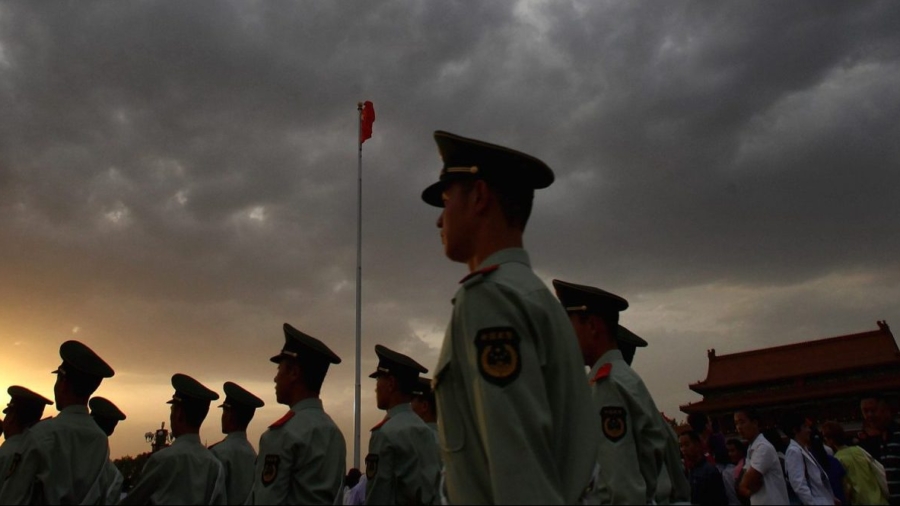The Chinese regime is stepping up efforts to influence overseas Chinese communities and political systems worldwide, and democratic countries should tackle such campaigns with firm responses, according to a new report.
The United Front Work Department, a unit under the Chinese Communist Party (CCP), coordinates thousands of groups to carry out foreign political influence operations, suppress dissident movements, gather intelligence, and facilitate the transfer of technology to China, according to a June report by think tank Australian Strategic Policy Institute.
The unit’s political influence initiatives target foreign elites, including politicians and business executives, and are often covert in nature, the report said. Overseas Chinese communities are also key targets, with the party seeking to co-opt and control community groups, business associations, and Chinese-language media.
“Successful united front work wedges the party between ethnic Chinese communities and the societies they live in, expanding the party’s control of those communities’ channels for representation and mobilization,” the report said.
The department also runs China News Service, one of the regime’s largest news outlets, spreading propaganda to the Chinese diaspora, the report said. It has also established think tanks, while Chinese individuals with ties to united front bodies have funded research at Western think tanks.
Alex Joske, author of the report, said that the United Front’s work abroad amounts to an “exportation of the CCP’s political system.”
Its efforts “undermines social cohesion, exacerbates racial tension, influences politics, harms media integrity, facilitates espionage, and increases unsupervised technology transfer,” the report said.
United States
A key component of China’s united front system involves Beijing’s “legal and illicit technology-transfer efforts,” according to the report.
Beijing establishes or co-opts “professional associations with members in universities, governments, and private companies,” and hires overseas scientists under China’s state-sponsored recruitment programs such as the Thousand Talents Plan.
Beijing rolled out the Thousand Talents Plan in 2008 to aggressively recruit promising science and tech researchers from foreign countries to work in China.
Many professors in the United States have been indicted for failing to disclose their participation in the Thousand Talents Plan, including those at Emory University, University of Kansas, and Harvard University. Some Thousand Talents participants have been charged in cases of intellectual property theft.
Organizations for overseas Chinese, such as the Western Returned Scholars Association (WRSA), also take part in recruitment efforts.
WRSA is directed by the United Front Work Department, and has a division dedicated to recruiting overseas experts for the Thousand Talents program. WRSA has branches in 15 countries, including the United States.
According to China’s state-run People’s Daily, the recruiting branch was established in January 2011.
The organization views recruitment as a key priority. In April 2018, Chen Zhu, WRSA’s chairman, said during a meeting in Beijing that it was important for the organization to be a “talent bank” for China. Chen also said it was key to continuously strengthen the “political guidance” for those studying overseas, as part of its mission to implement the United Front Word Department’s policy.
ASPI highlighted a criminal case in the United States in connection to the United Front. The case involved Yang Chunlai, a naturalized U.S. citizen and former engineer at Chicago-based global markets company CME Group, who was convicted of stealing trade secrets in 2015.
Yang started working for CME in 2000. Between 2010 and 2011, he downloaded more than 10,000 computer files of CME’s source codes that made up a substantial part of its electronic trading platform Globex. He transferred the files to his personal hard drive.
Yang and two unnamed business partners planned to form a business called Tongmei Futures Exchange Software Technology Company in China. Yang’s company planned to provide technology to the Zhangjiagang Exchange, a chemical electronic trading market in China, that could increase its trading volume. Zhangjiagang is a city in coastal China’s Jiangsu Province.
He pleaded guilty in September 2012 and was sentenced to four years of probation in 2015.
Yang was also former president of the Association of Chinese Scientists and Engineers (ACSE) in the United States. Founded in Chicago in 1992, the association has members in more than 20 states.
According to the ASPI report, ACSE frequently meets with United Front officials.
Yang also served on an advisory committee at the Overseas Chinese Affairs Office—originally an agency under China’s State Council, that is now a bureau under the United Front after an institutional restructuring in 2018, according to Chinese state-run media.
In 2006, Yang visited Beijing to attend a training course for “young overseas Chinese leaders.” There, he met an investment and talent recruitment delegation from a Chinese county government, according to the report.
“The source code he later stole, some of which he sent to the county government, was meant to help grow the business he established in the county’s free trade zone,” ASPI stated.
The report recommended that governments study and develop their capacity to understand China’s united front work and come up with high-level policies on countering foreign interference.
ASPI also suggested that governments work with universities to develop responses to Chinese influence on their campuses. Public officials should not legitimize united front groups, it added, and instead support independent Chinese community groups in the diaspora.
It also suggested that Chinese foreign agents be denied visas or expelled from countries.
From The Epoch Times

